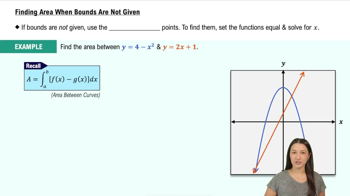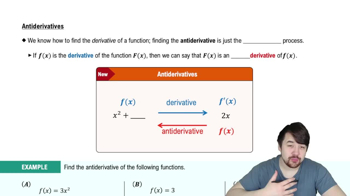Derivatives of integrals Simplify the following expressions.
d/d𝓍 ∫₃ˣ (t² + t + 1) dt
 Verified step by step guidance
Verified step by step guidance Verified video answer for a similar problem:
Verified video answer for a similar problem:



 6:11m
6:11mMaster Fundamental Theorem of Calculus Part 1 with a bite sized video explanation from Patrick
Start learning